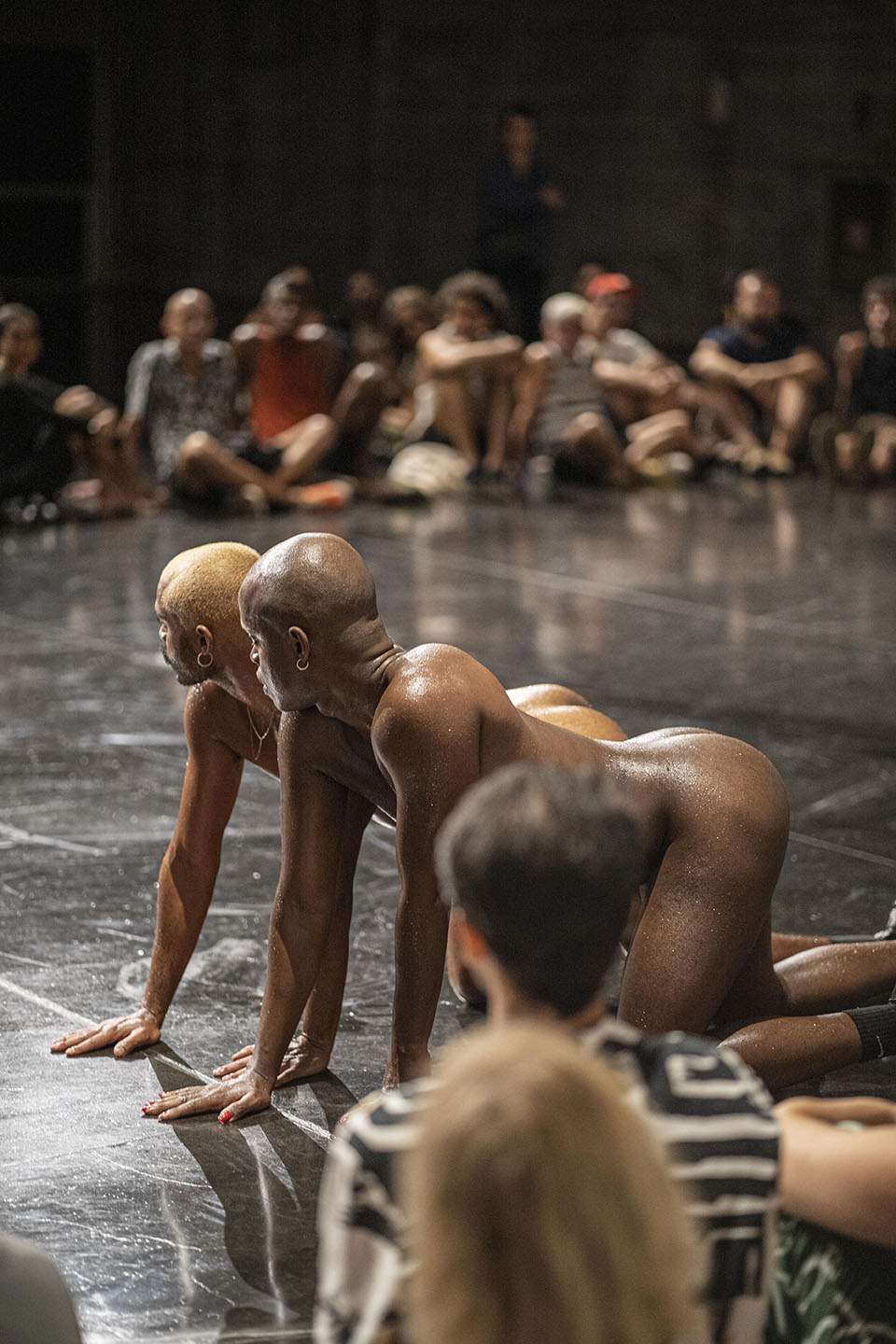Since 2018, Pontes and Ferreira have produced a trilogy of works named Repertório that delves into the identification and radical elaboration of their common experiences and research related to dance and the experience of the Black dissident body.
Repertory N.2 is the second part of the choreographic trilogy aimed at conceptualizing dance as a form of self-defense. Using deviant and informal techniques, they embrace an alternative, underground genealogy of self-defense practices. Through these choreographies, they commit to critically reflect on the world they inhabit, engaging in a choreographic operation that navigates between imagination and intuition, striving for liberation from implicit and explicit constraints and confronting the colonial, racial and cisheteropatriarchal matrix inherent in Enlightenment and modern Western thought.
Starting from the question “How can a dance of self-defense be elaborated?” Pontes and Ferreira experiment with symbolic deviations from the violence programmed by the State and by institutions that ensure order through repression.
Their creations use mimesis and rhythmic patterns to expand perceptions of time and space. Their choreography, influenced by martial arts, capoeira and a critical reading of dance history, explores movement vocabularies in the realm of Black Aesthetics.
As art history researcher Maria Luiza Meneses poses:
“If the Black body at rest is suspicious and when in movement a threat, Pontes and Ferreira find within this choreographic act possible strategies to re-elaborate imaginaries, proposing changes in the symbolic meanings of the Black presence in a world that is not yet able to grant these lives existence and dignity. While modern dance has instructed the viewing public to expect impressive and grandiose events, repetition reinforces the expectation of the future and uncertainty breaks with predictability about dance. Upon making contact with the performance in progress, the audience finds itself immersed in the imprecision about beginning and end. It is possible to say that Pontes and Ferreira develop a countercolonial anti-choreography, which, in the practice of Black life can mean the recovery and foundation of strategic ways of moving towards self-defense in everyday life, deviating from racial violence, reworking the perception of self and time-space towards the end of the organization of the current world.”




